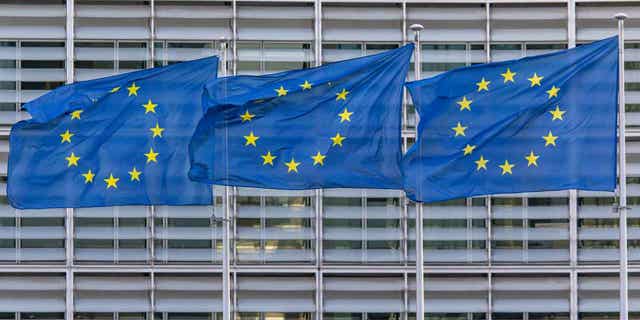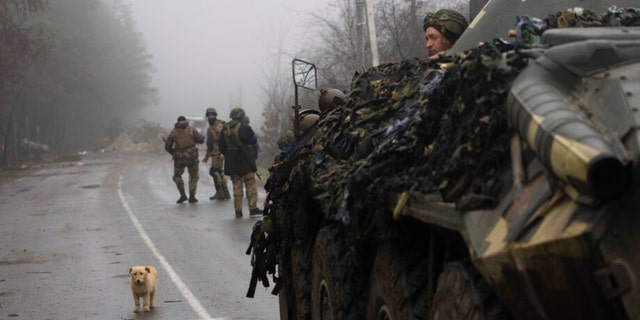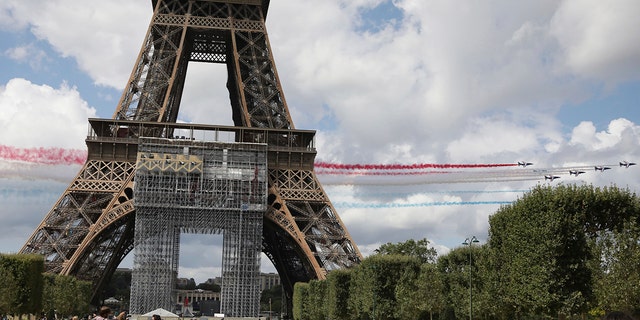close 
Winter of discontent heading to U.S., Europe: Stuart Varney
FOX Business’ Stuart Varney discusses economic struggles and high inflation affecting Americans and Europeans alike and comments on former UK Prime Minister Liz Truss getting a $129,000 annual payout, on ‘Fox & Friends Weekend.’
Europeans are feeling the pinch of multiple crises, with nearly half of them saying they have already seen a decline in their standard of living.
A staggering 46% of Europeans living in the European Union bloc of countries say their standard of living has recently decreased, while 45% say they are having “some” or “a lot” of difficulties with their income, according to a new Eurobarometer reported on by EuroNews this month. Another 39% of respondents envision a decline to their standard of living in the future, according to the survey, which described the “polycrisis mood” facing Europe.
Europeans have seen a barrage of bad economic news in recent years, amidst the COVID-19 pandemic wreaking havoc on economies across the continent with the resulting lockdowns, inflation and supply chain disruptions.
The problems were only exacerbated by Russia’s invasion of Ukraine last year, pushing Europe into an energy crisis after years of dependence on Russian natural gas and further threatening the supply of food as one of the world’s largest producers of wheat and corn attempts to defend itself.
EUROPEAN UNION OPENS 2-DAY SUMMIT ON ENERGY CRISIS

Flags of Europe as seen waving on a pole.
(Nicolas Economou/NurPhoto via Getty Images)
EU countries experiencing the steepest perceived drop in standard of living include Cyprus, where 70% of respondents reported their standard of living has “already been reduced.” Cyprus was followed by Greece (66%), Malta (65%), France (62%) and Portugal (57%) as those reporting the most negative outlook.
The lower standard of living has many reporting that they are falling behind on their bills, with 30% of respondents saying that they struggle to pay their monthly bills “from time to time,” while another 9% report the same struggle “most of the time.”
A total of 56% of Europeans expressed dissatisfaction at the measures the European Union has taken to attempt to alleviate the cost-of-living crisis, while 64% felt the same sort of dissatisfaction with their national government.
The rise in cost of living was the primary concern of European residents, according to the poll, with 93% expressing worry about the crisis. That concern was followed by poverty and social exclusion (82%), climate change (81%) and the war in Ukraine spreading elsewhere into Europe (81%).

A dog is seen in the middle of a street as Ukrainian army soldiers take part of a military sweep to search for possible remnants of Russian troops after their withdrawal from villages in the outskirts of Kyiv.
(AP Photo/Rodrigo Abd)
EU TO ANNOUNCE UKRAINE TRAINING MISSION, $500 MILLION FOR WEAPONS
Nevertheless, Europeans indicated that support for the Ukrainian war effort remains intact, with 74% of E.U. citizens saying that they approve of the bloc’s response to the war.
Nordic countries were among the few to express optimism about their economic conditions, with 87% of those in Sweden, 86% in Denmark and 84% in Finland indicating that they are currently satisfied with their income.
Experts have warned that the year ahead could include more tumultuous times, forcing countries to work together to alleviate shared problems across the continent.
Lindsay Newman, the head of geopolitical thought leadership for S&P Global Market Intelligence, told Fox Business earlier this month that the relatively peaceful “post-Cold War era is clearly over, and there are major powers out there looking to shape the future.”

The French Aerial Patrol fly by the Eiffel Tower in Paris.
(AP Photo/Adrienne Surprenant)
CLICK HERE TO GET THE FOX NEWS APP
“We see more volatility ahead rather than less,” she warned.
Sridhar Tayur, a supply-chain management expert who teaches at Carnegie Mellon University’s business school, argued that international cooperation will be key to how the global economy fares as countries confront a new reality.
“There’s not going to be a situation where countries can take their ball and go home and not solve those problems together,” he told Fox Business earlier this month. “These challenges are shared and will require shared solutions.”
Michael Lee is a writer at Fox News. Follow him on Twitter @UAMichaelLee
